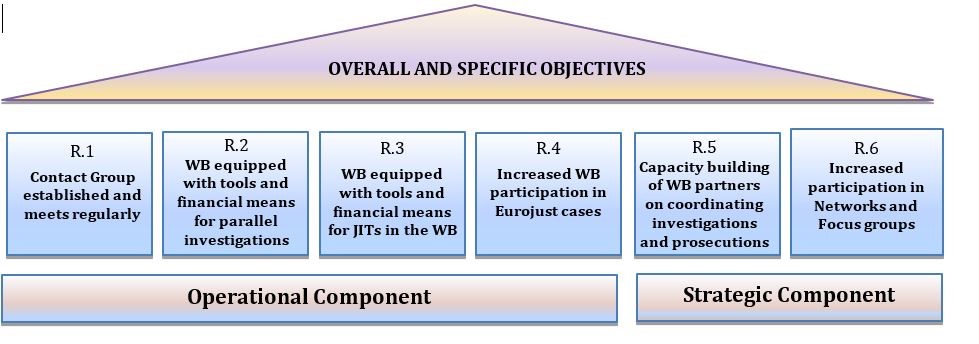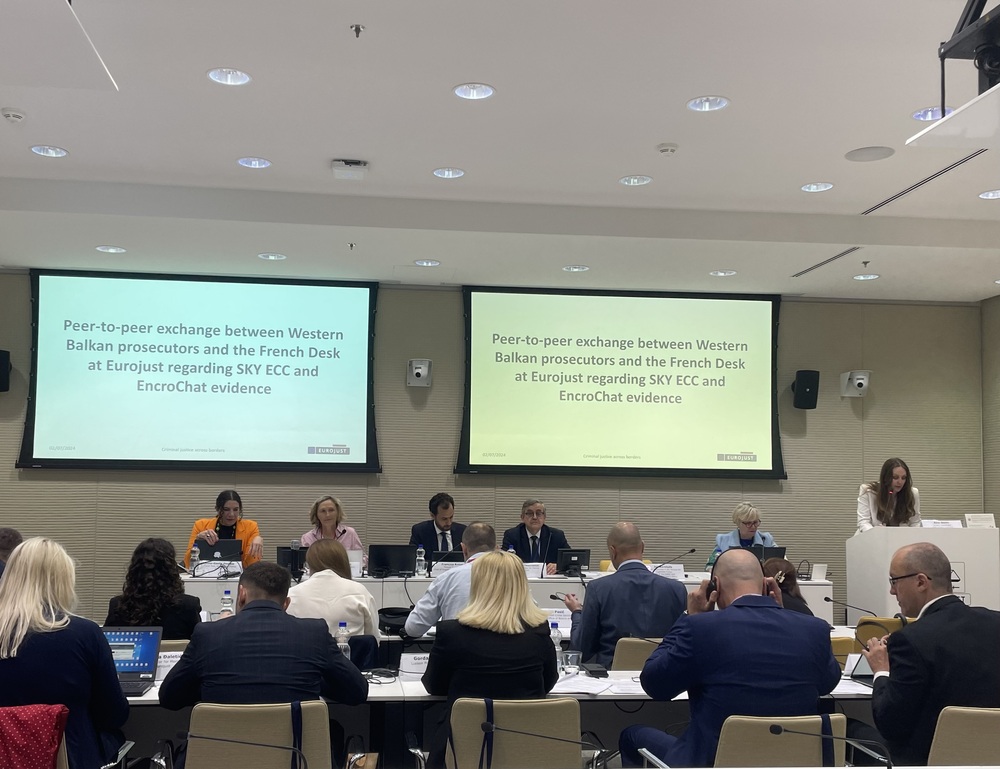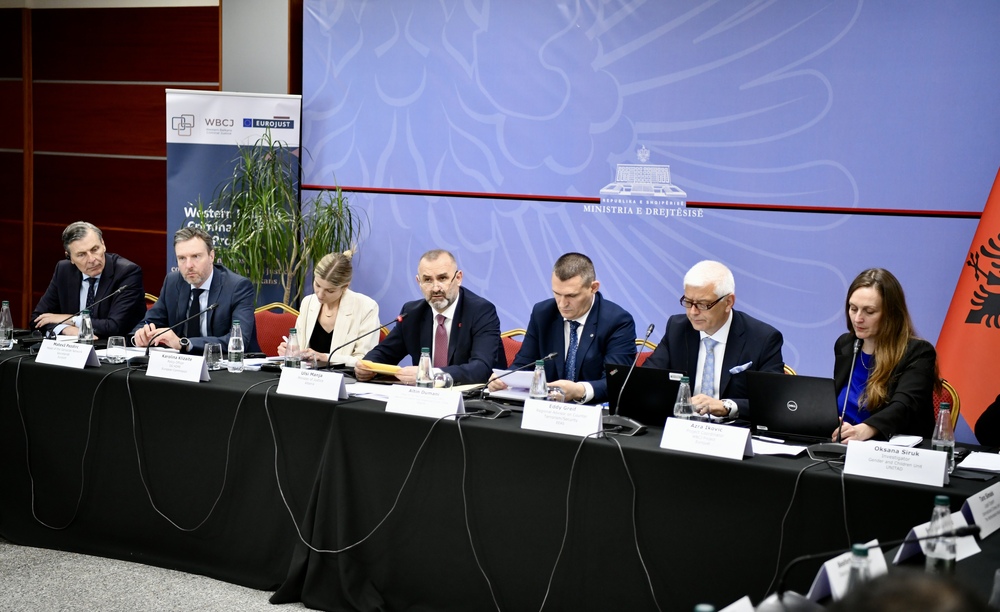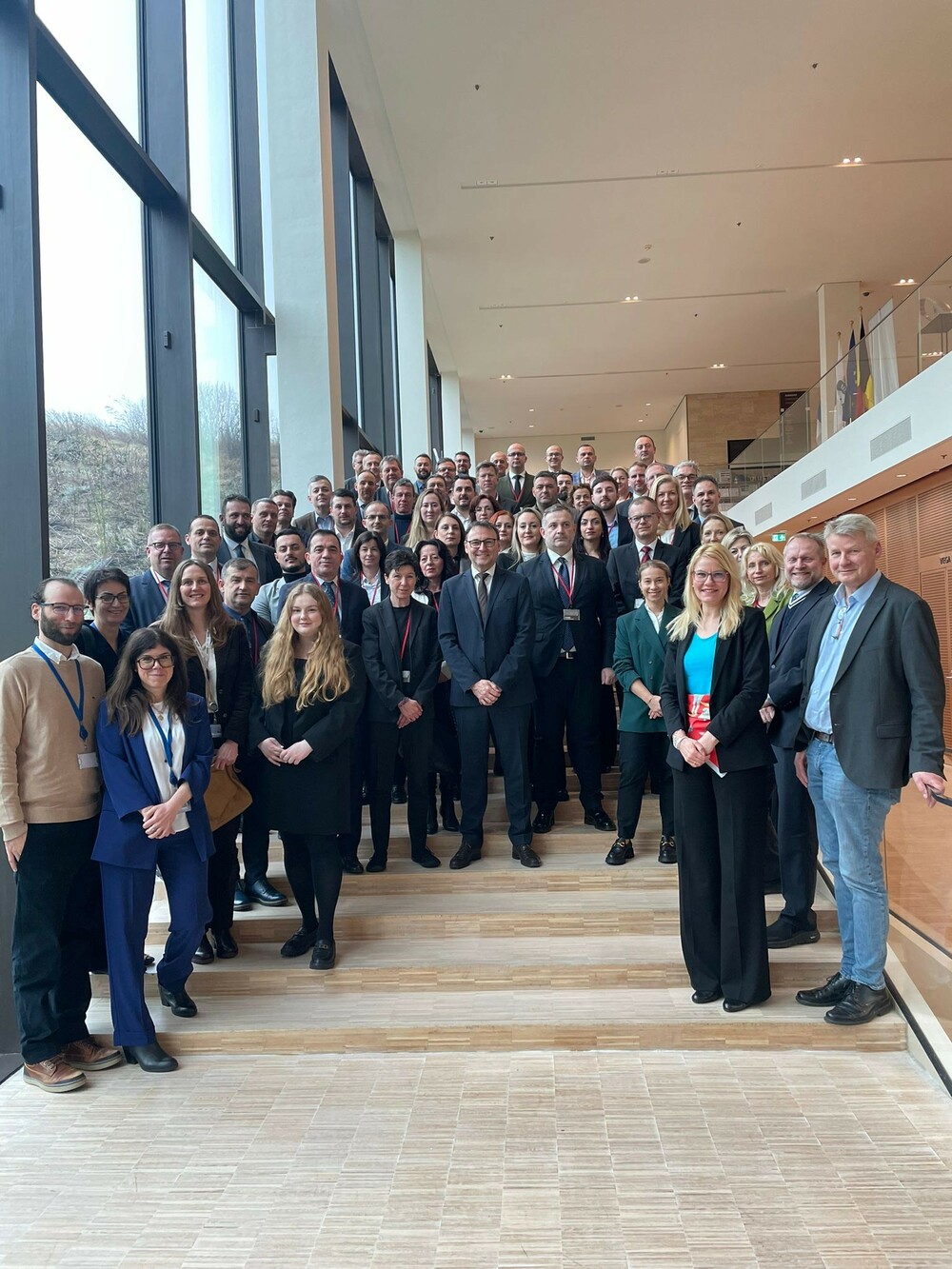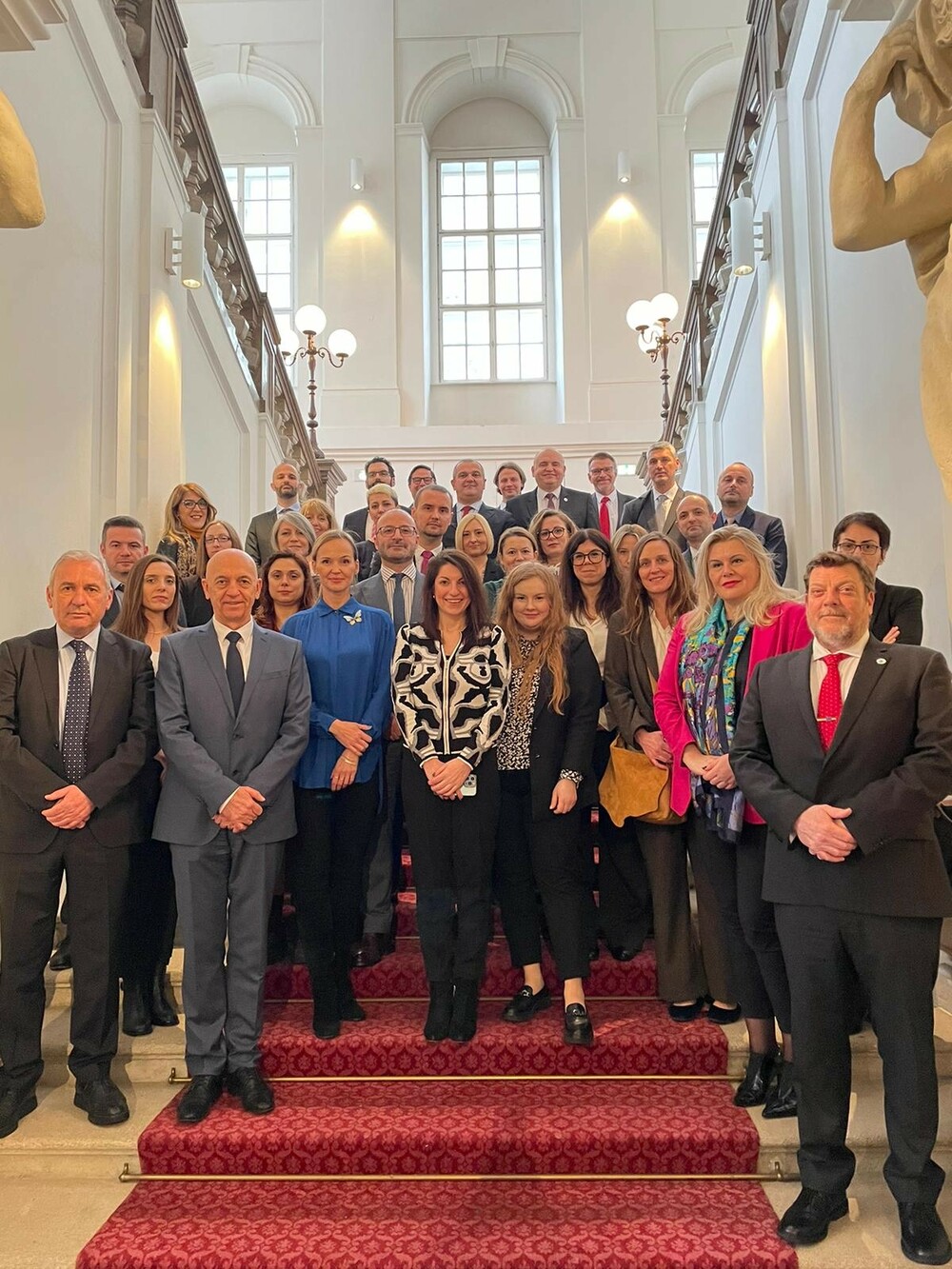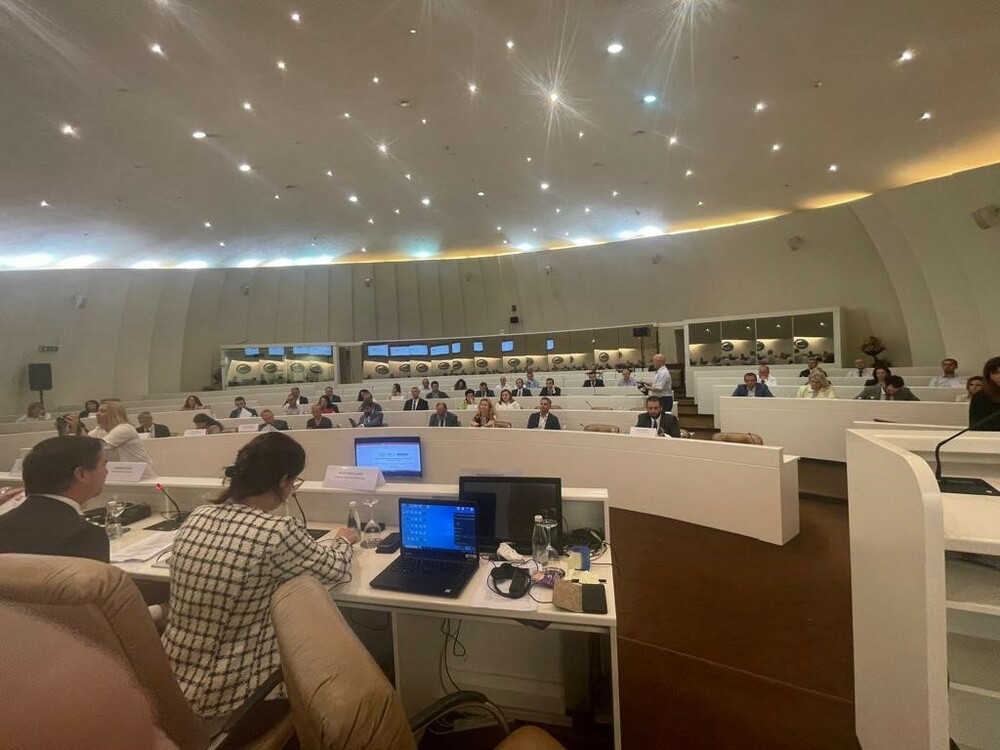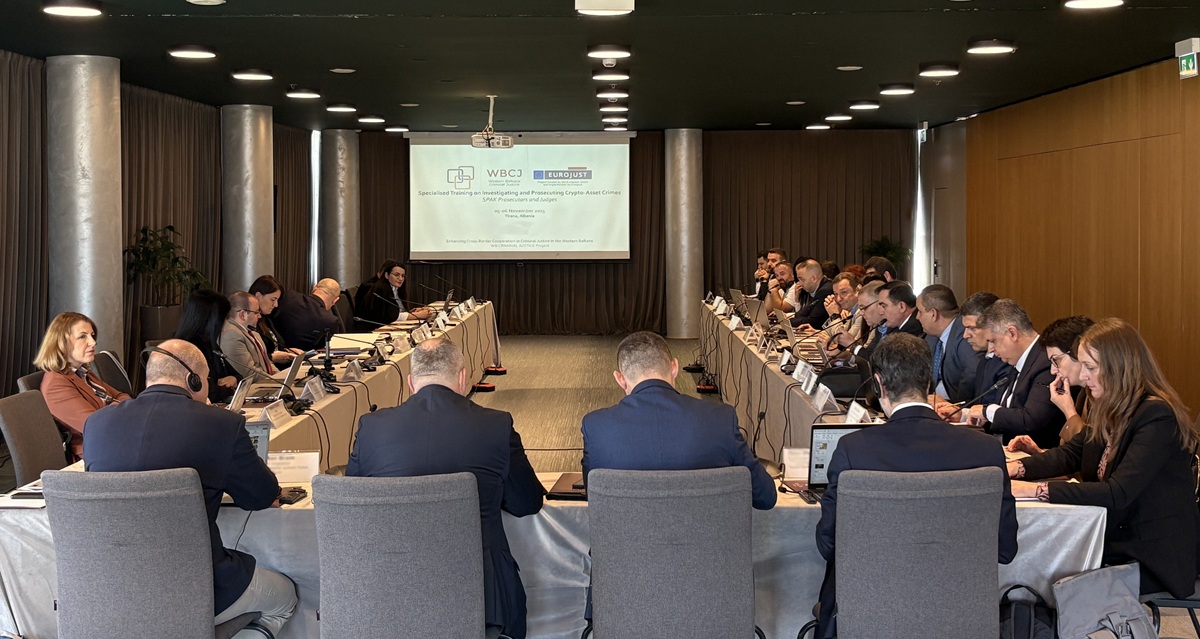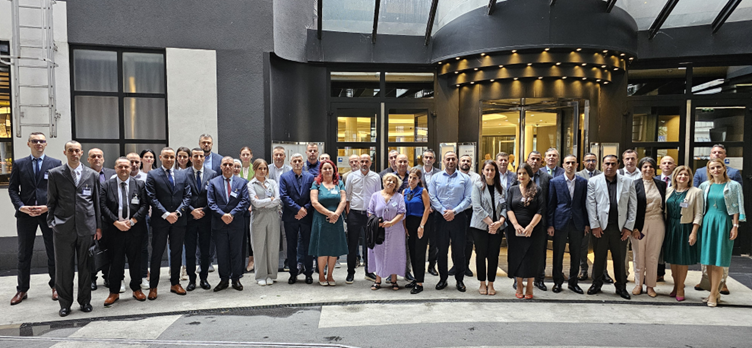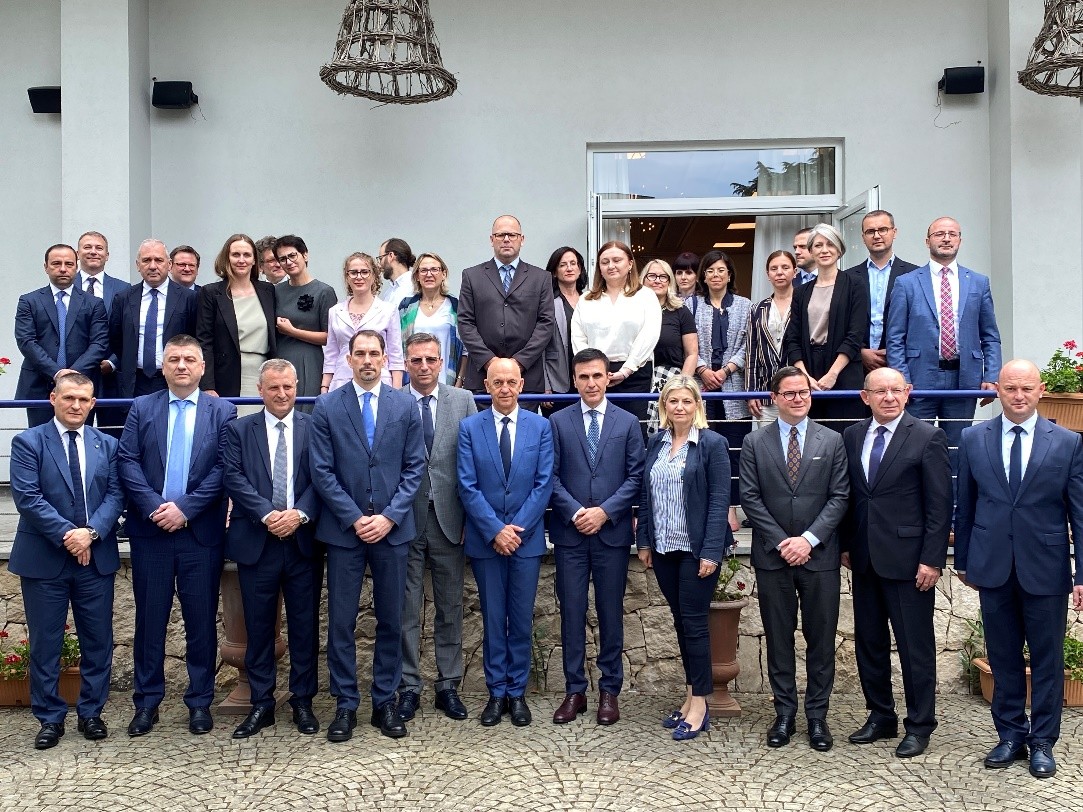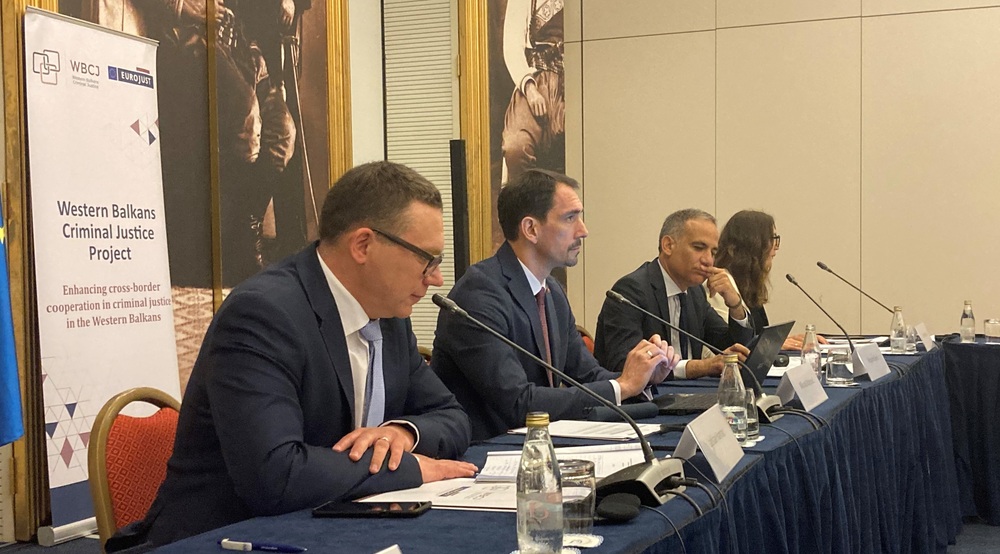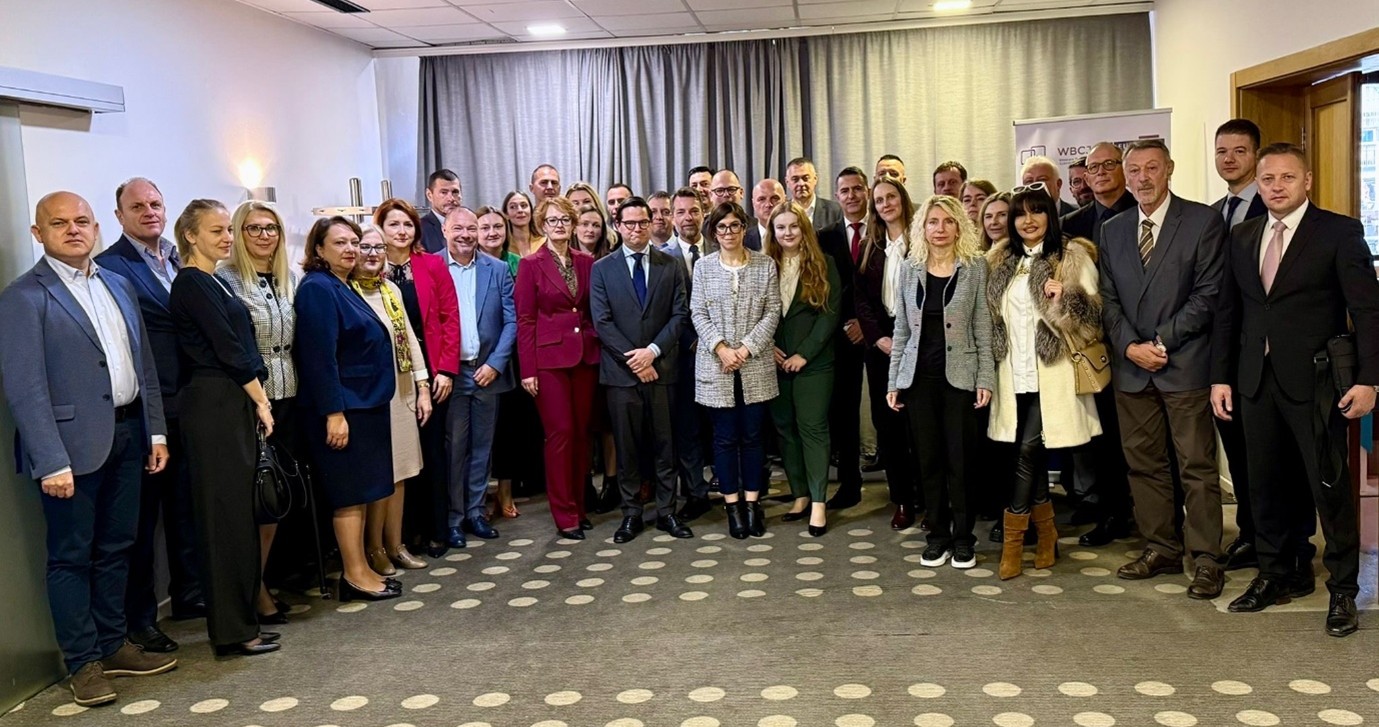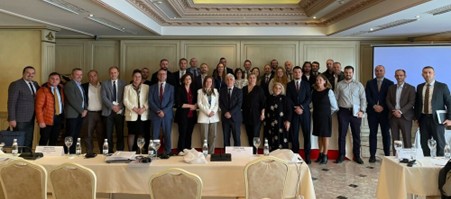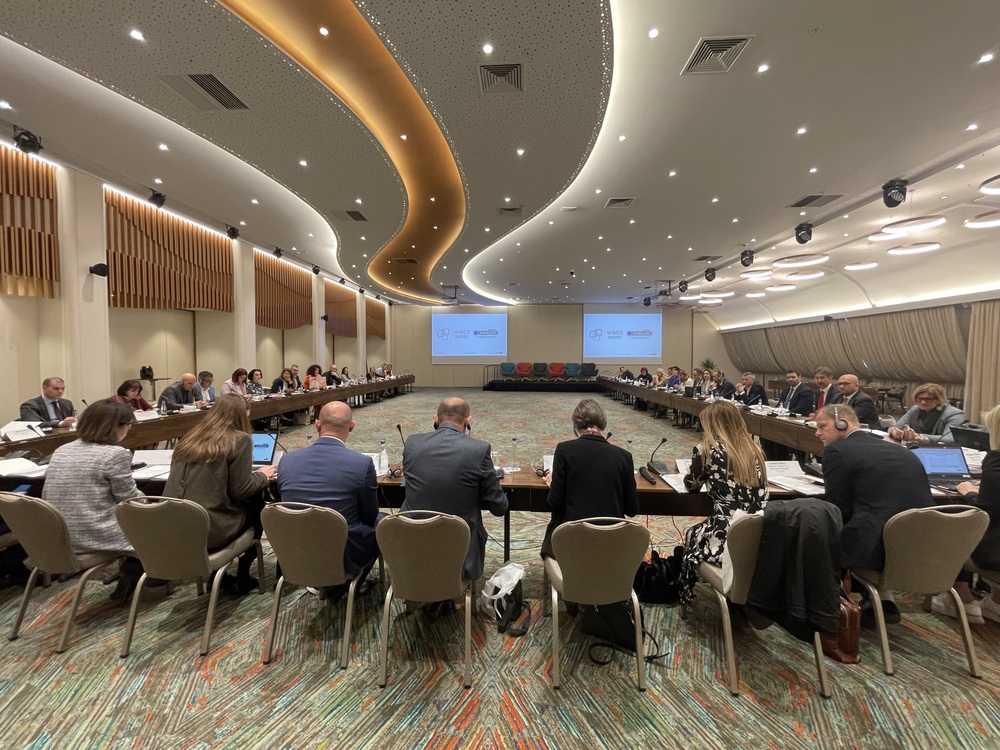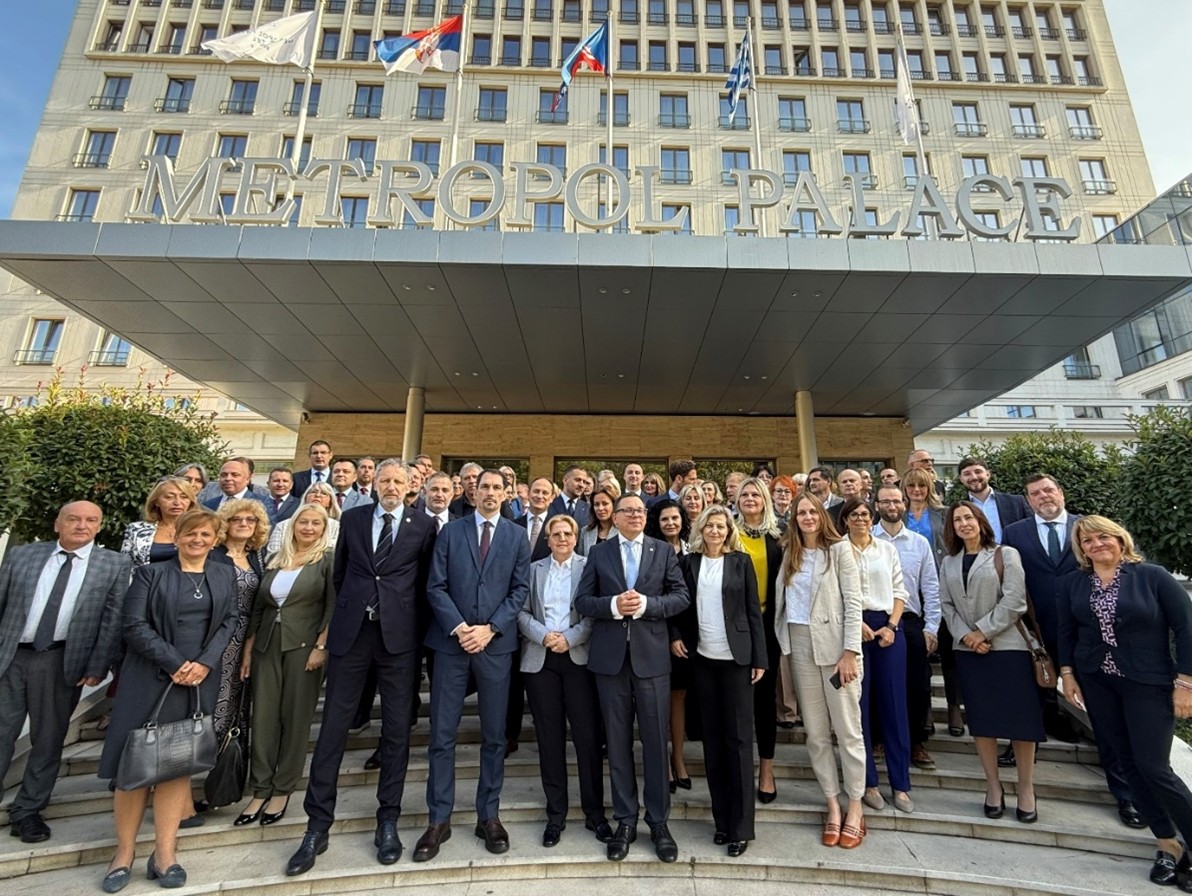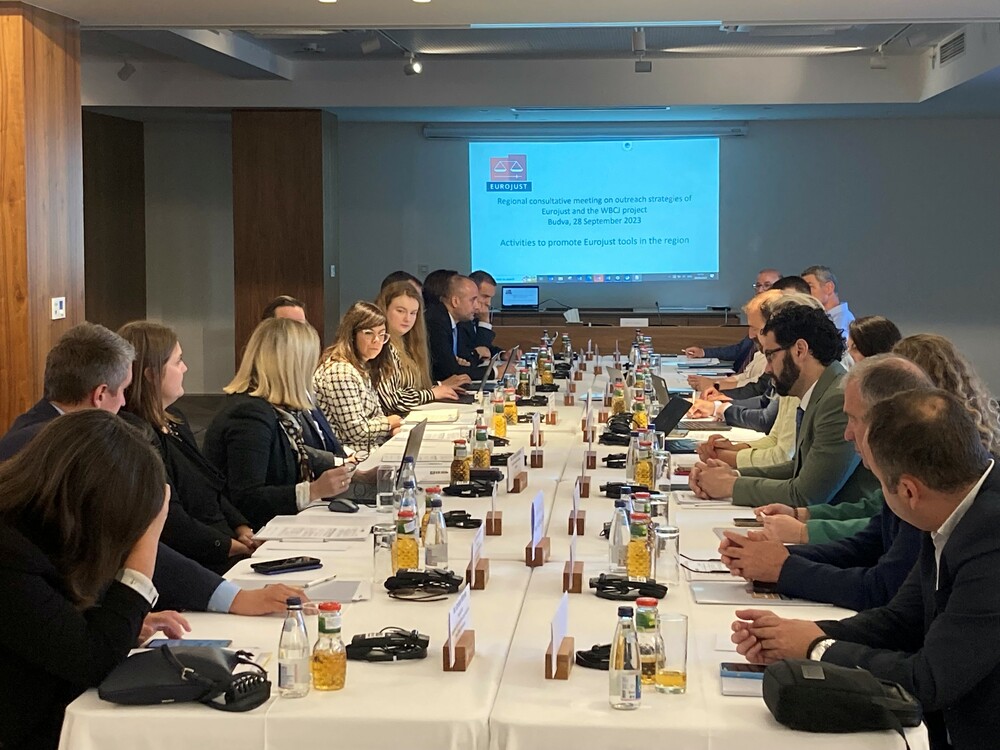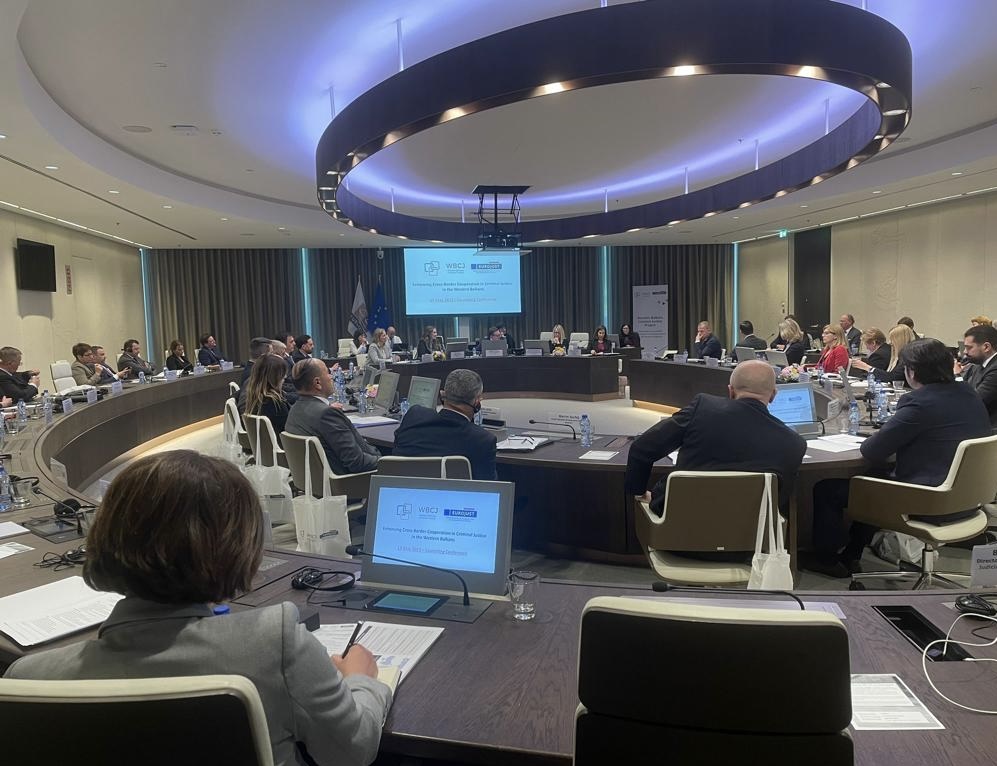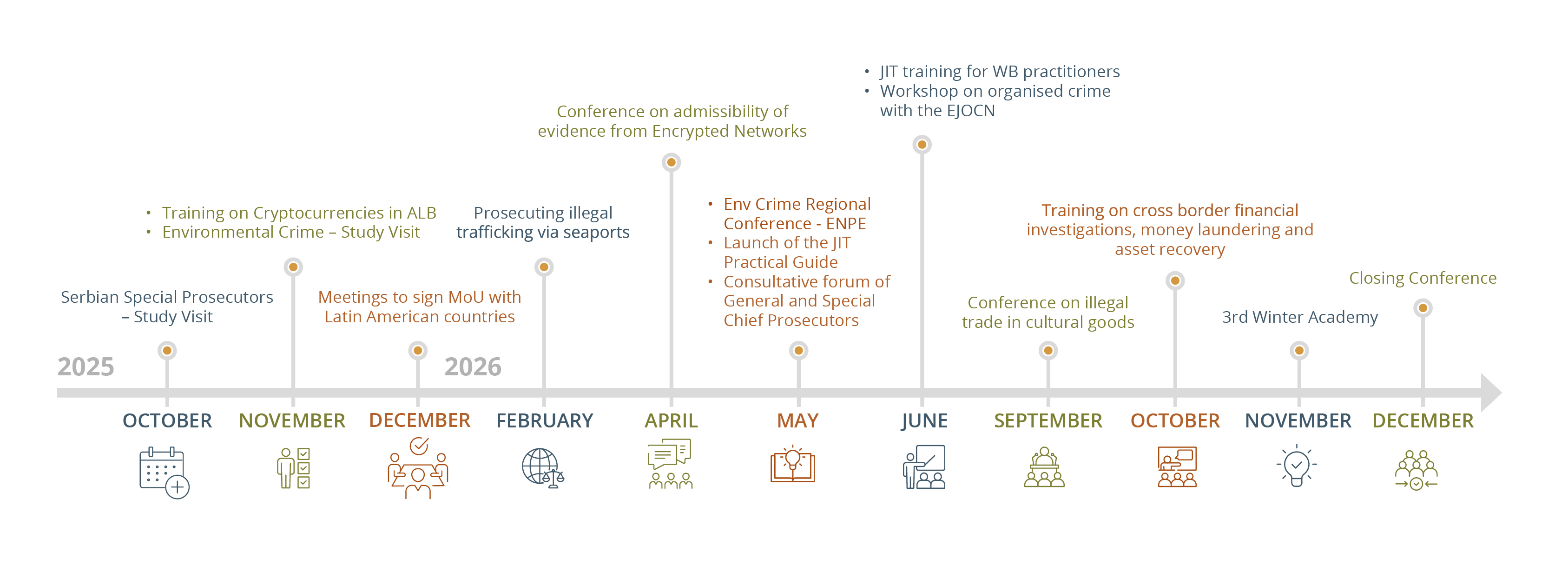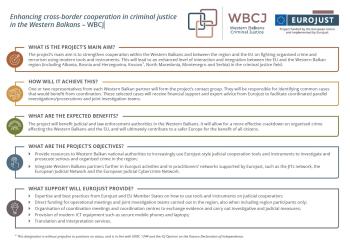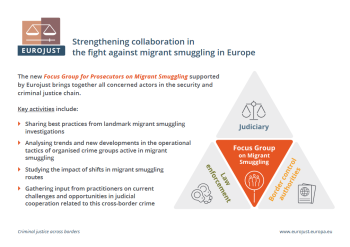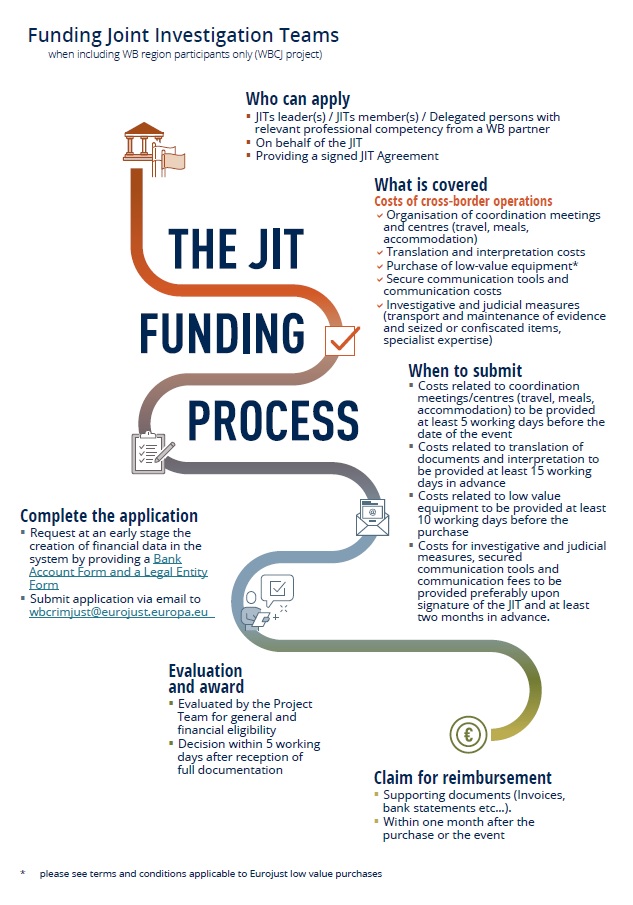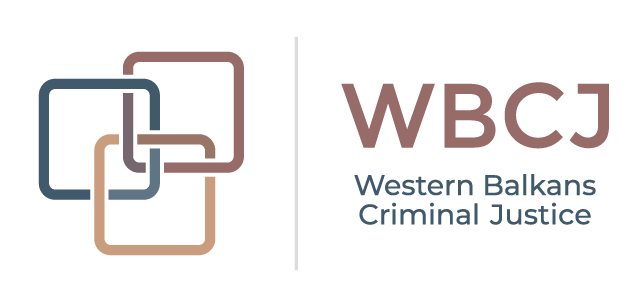
The European Union (EU) and the Western Balkans face common criminal threats, and cooperation between the EU and its neighbours is crucial to effectively combat cross-border organised crime. As candidates and potential candidates for EU membership, Albania, Bosnia and Herzegovina, Kosovo*, North Macedonia, Montenegro, and Serbia are key partners in building a safer Europe.
For the past two decades, Eurojust has provided operational support and assistance to EU Member States, with a particular focus on facilitating judicial cooperation. The Western Balkans Criminal Justice (WBCJ) Project was developed to extend this operational support to Western Balkan partners, even in cases where no EU country is directly involved.
The aim of the WBCJ Project is to strengthen cooperation within the Western Balkans and between the region and the European Union in the fight against organised crime and terrorism, using modern tools and instruments. Equipping Western Balkan partners with EU judicial cooperation tools and working methods - such as coordination meetings, coordination centres, and Joint Investigation Teams (JITs) - is essential for the successful outcome of cross-border investigations.
The project covers the following types of support:
- Expertise and best practices from Eurojust and EU member states on how to use tools and instruments for judicial cooperation;
- Direct funding for operational meetings (coordination meetings , coordination centres) and investigative activities among Western Balkan partners, both within and outside of JITs;
- Provision of modern ICT equipment such as secure mobile phones and laptops;
- Translation and interpretation services.

